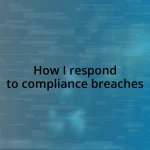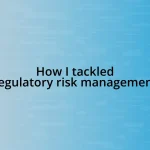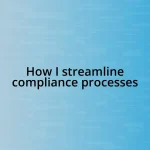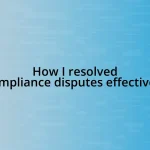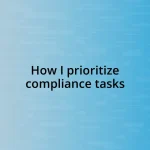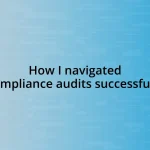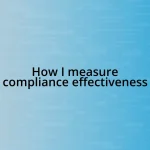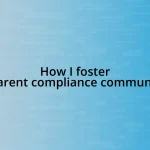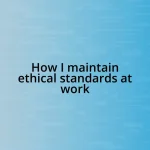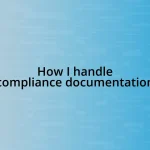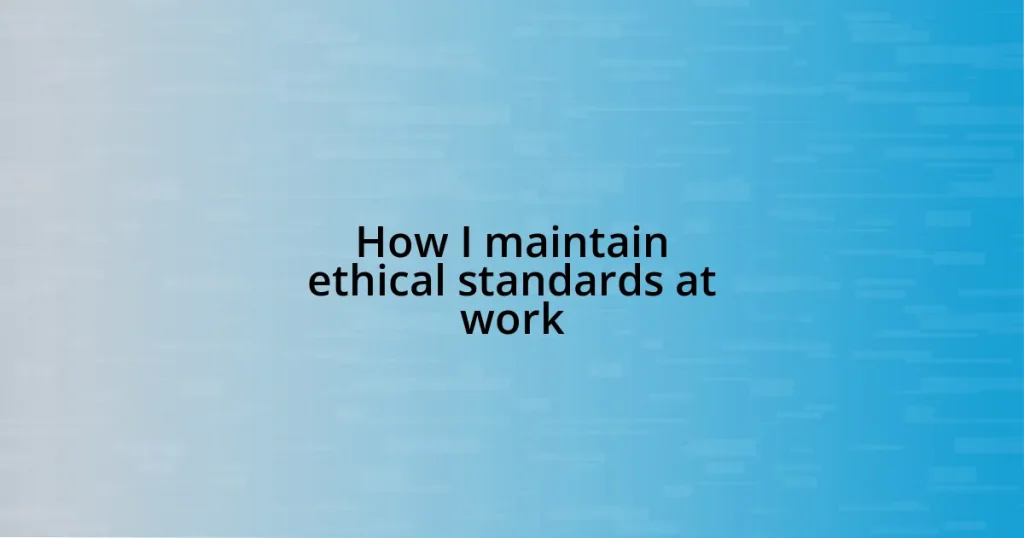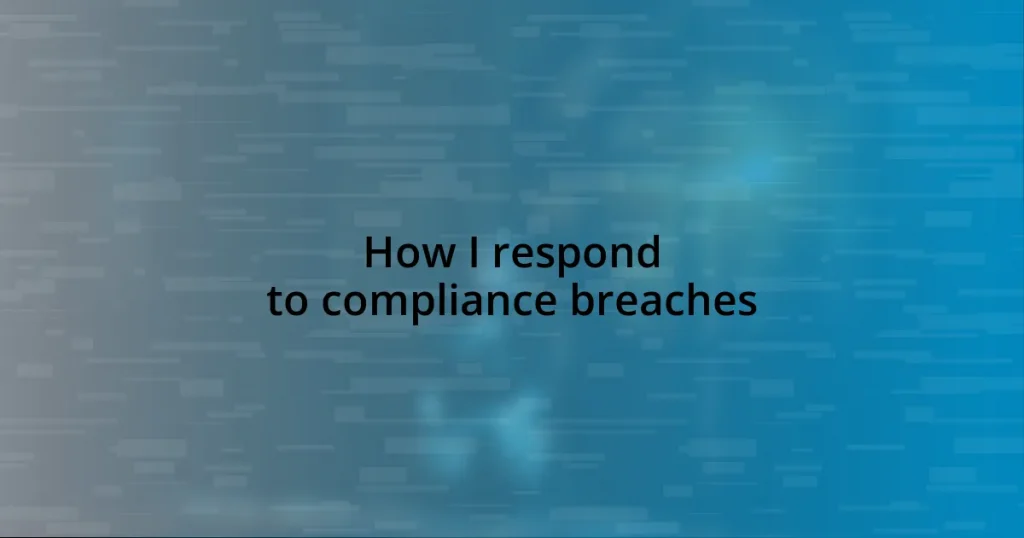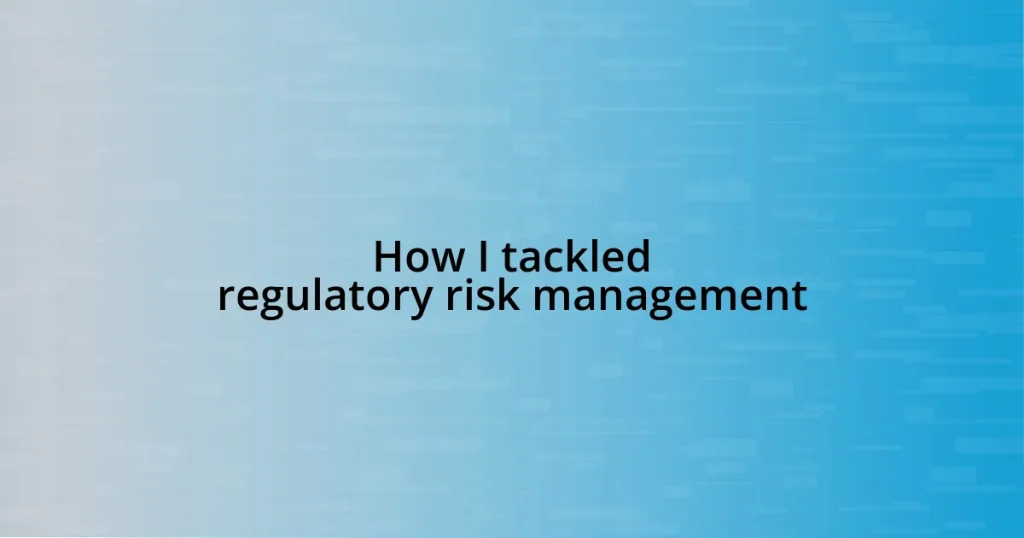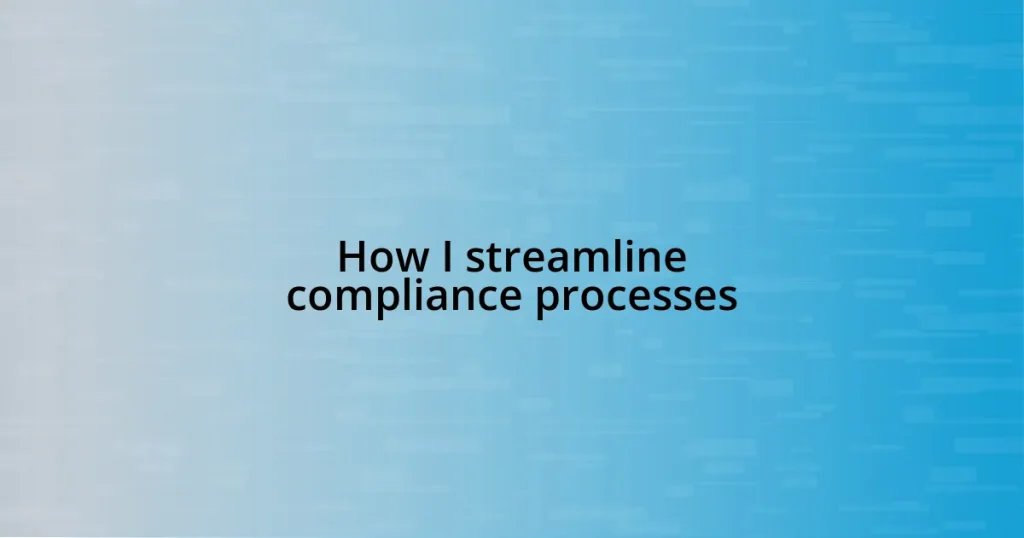Key takeaways:
- Understanding ethical standards involves aligning personal values with workplace principles to foster integrity and trust.
- Open communication and regular review of ethical guidelines empower employees to address dilemmas and uphold organizational values.
- Celebrating ethical behavior motivates others to reflect on their choices and contributes to a culture of accountability.
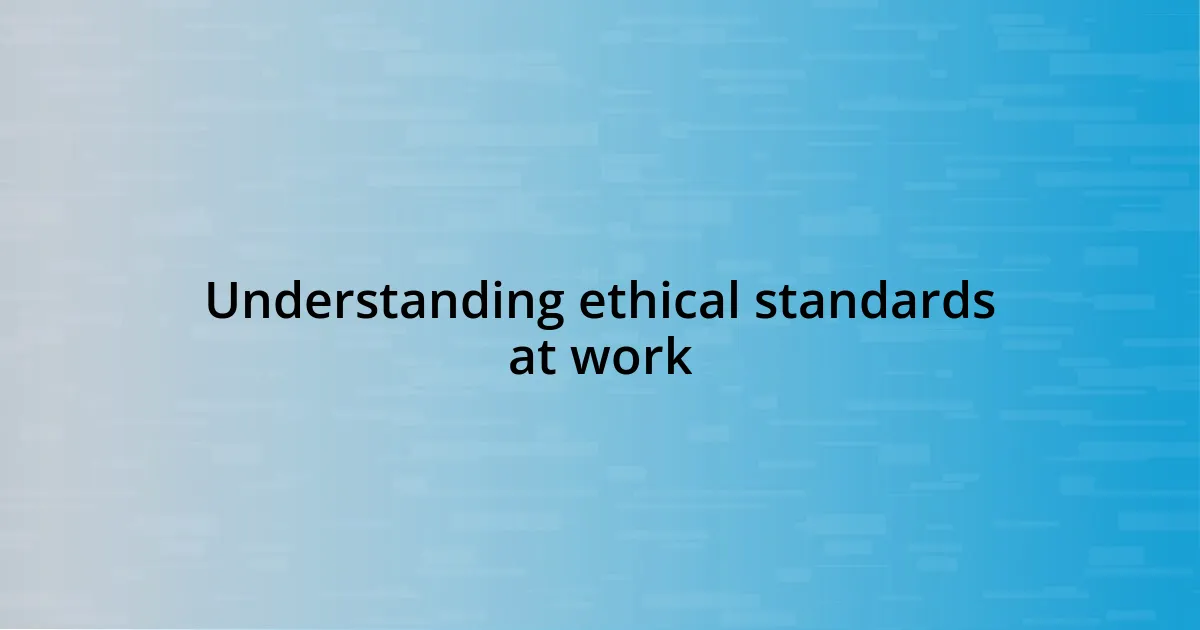
Understanding ethical standards at work
Understanding ethical standards at work goes beyond just following the rules; it’s about fostering a culture of integrity and respect. I remember when I first entered the workforce, I faced a dilemma with a project that required me to cut corners to meet a deadline. In that moment, I had to ask myself: was meeting the deadline worth compromising my values?
Ethical standards often serve as a compass, guiding our decisions and actions amidst challenging situations. For instance, during a team meeting, we faced pressure to push a product that didn’t meet quality standards. I felt a responsibility not just to my team but to our customers, prompting me to advocate for an honest discussion. Have you ever felt that tug-of-war between company goals and your own principles? It’s a common struggle, and addressing it openly can cultivate trust within the team.
At times, ethical standards can feel abstract, like an ideal we aspire to rather than a practical reality. I’ve experienced this firsthand when a colleague reported unethical behavior by a manager. This courageous act sparked a deep conversation about accountability, demonstrating that ethical standards aren’t just policies; they’re a shared commitment that can transform the workplace dynamic. How do you view these examples? In my experience, aligning personal values with company ethics creates a more engaged and passionate work environment.
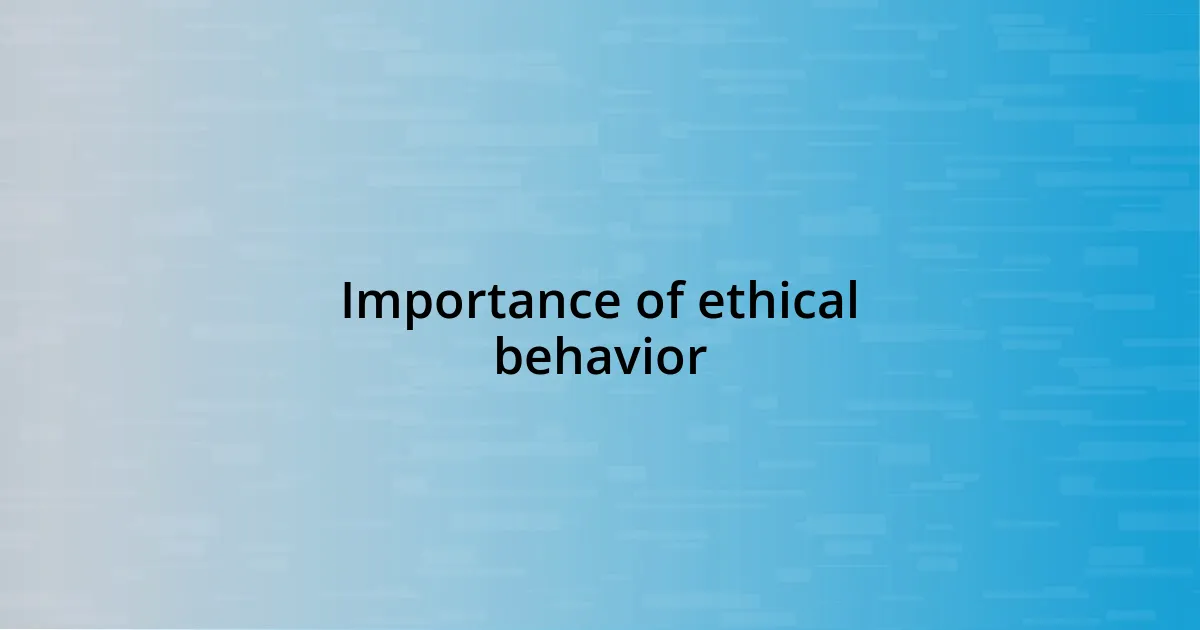
Importance of ethical behavior
Ethical behavior in the workplace is crucial for building trust among colleagues and fostering a positive culture. I still recall a time when a team member approached me about being pressured to inflate their performance metrics. That conversation was eye-opening; it reminded me just how critical it is for each of us to act with integrity, even when external pressures tempt us otherwise.
Here are a few reasons why ethical behavior matters:
- It cultivates trust: When team members act ethically, trust flourishes, paving the way for open communication.
- It enhances reputation: Organizations known for their ethical standards attract talent and loyal customers.
- It improves morale: A work culture rooted in ethics fosters a sense of belonging and motivation, leading to higher employee satisfaction.
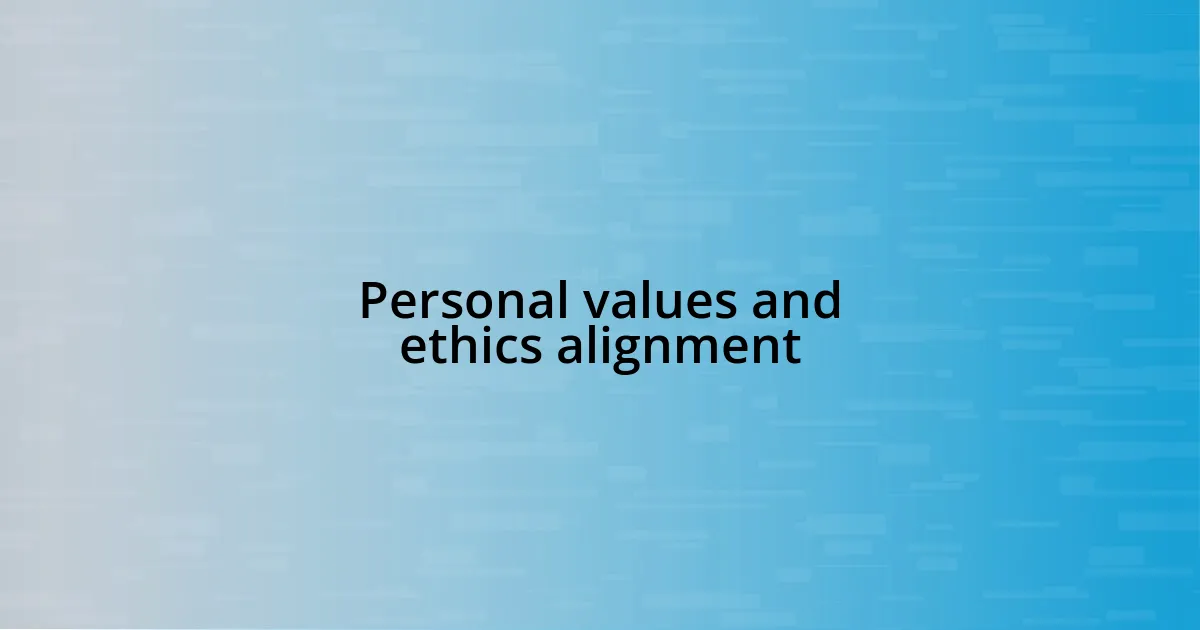
Personal values and ethics alignment
Aligning personal values with the ethics of my workplace is not just essential; it’s a fundamental part of how I approach my career. I vividly remember a situation when my values about transparency clashed with a manager’s directive to downplay some issues in a client report. It was a pivotal moment for me. I chose to advocate for honesty, leading to a more genuine relationship with our client and reinforcing my commitment to integrity. The reward was not just immediate relief but a stronger ethical foundation for my professional identity.
I often reflect on how my core values influence my decision-making process at work. For instance, when faced with a choice that could potentially harm team morale, I prioritize collective well-being over individual gain. I’ve learned that when my actions align with my personal values, it leads to a deeper sense of fulfillment and purpose. Have you ever wondered how your values affect your daily choices? I believe this connection significantly shapes our workplace culture and enhances collaboration.
In my experience, the alignment of personal values and workplace ethics creates a robust and resilient team dynamic. I’ve seen this first-hand during team challenges where sticking to our ethical principles often led to innovative solutions. For example, during a particularly tough project, our team’s commitment to integrity inspired creative problem-solving sessions rather than shortcuts. Witnessing this collaboration reinforced my belief that when personal and professional ethics unite, everyone thrives, often exceeding expectations.
| Personal Values | Workplace Ethics |
|---|---|
| Integrity | Transparency |
| Respect | Accountability |
| Collaboration | Fairness |
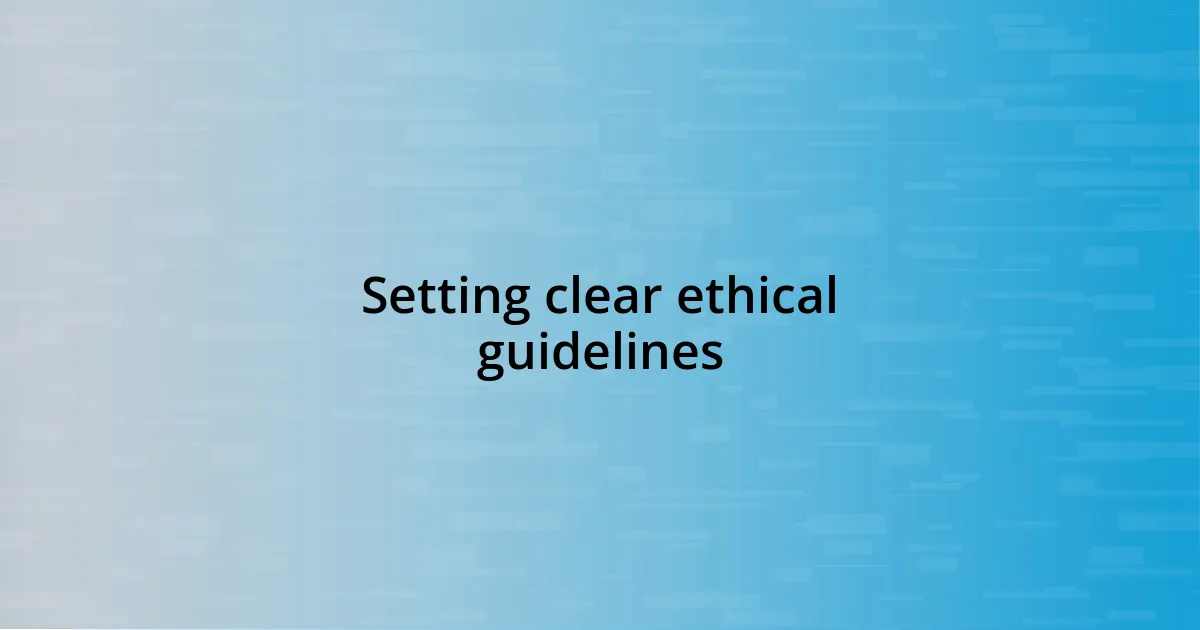
Setting clear ethical guidelines
When it comes to setting clear ethical guidelines in the workplace, I believe it starts with open dialogue. I remember when my company decided to revamp its code of conduct. The leadership team held a series of workshops that welcomed input from all levels. It was refreshing to see how genuinely they wanted to incorporate everyone’s thoughts. This kind of inclusive approach not only made me feel valued but also helped us establish guidelines that truly resonated with the team’s core values. Have you ever participated in a similar workshop? It can be enlightening to see how collective feedback shapes our shared ethical path.
Moreover, having these guidelines visibly posted was a game changer. In one instance, I noticed an employee referencing our code during a team meeting to justify a decision. That’s when it struck me how powerful clear ethical standards can be. They serve as a reminder of our commitments and encourage everyone to hold one another accountable. Isn’t it comforting to know that there’s a tangible reference for what we stand for? It empowers us to navigate tough situations with a moral compass.
Finally, I believe regular reviews of these ethical guidelines are essential. In my experience, organizations often forget that ethics are not static; they evolve with societal changes and industry norms. In our last review session, we discussed real-life scenarios, checking whether our guidelines still held up against emerging challenges. This practice not only keeps the discussion active but also reinforces our collective responsibility. How often does your organization update its ethical standards? I’ve found that this kind of vigilance can strengthen the foundation of trust and integrity in the workplace.
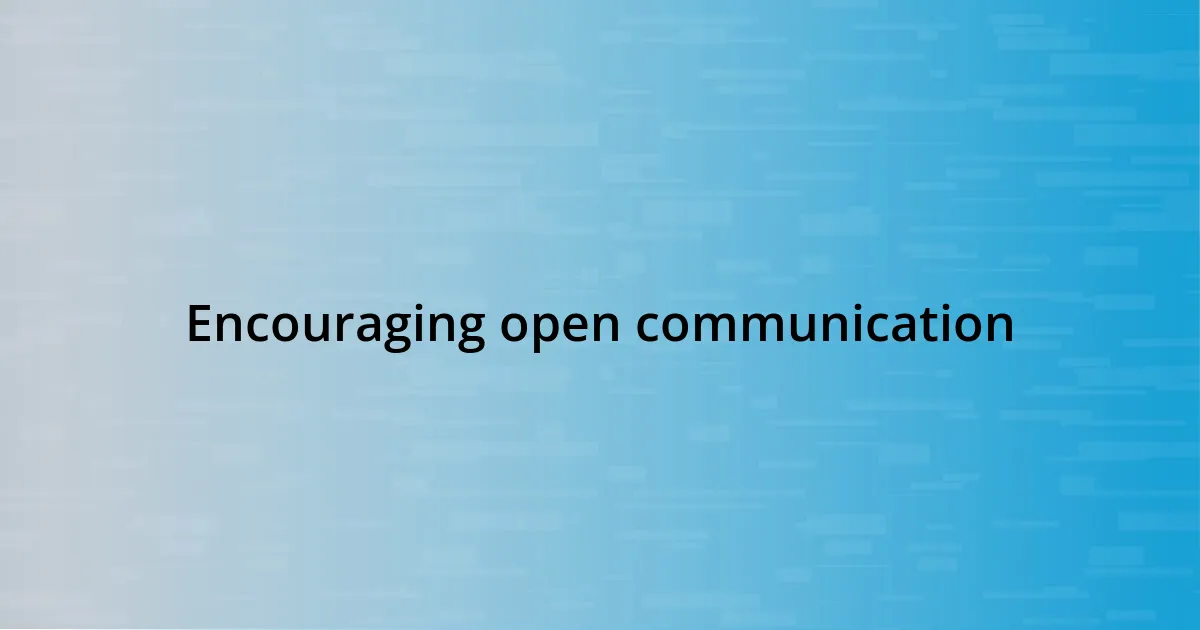
Encouraging open communication
Encouraging open communication is fundamental to fostering an ethical workplace environment. I remember a time when my team faced a significant project deadline, and the pressure was mounting. Instead of keeping our struggles to ourselves, we initiated daily check-ins to openly discuss challenges and seek support. This simple act not only alleviated stress but also cultivated a culture where everyone felt safe sharing their concerns. Have you ever been in a situation where transparency made all the difference? It can genuinely transform the dynamic of a team.
I’ve found that active listening plays a crucial role in promoting open communication. During a recent team meeting, we were discussing potential changes to a project scope. I intentionally made it a point to invite feedback from everyone, including the quieter members. The insights shared were invaluable, and I was amazed at how one team member’s suggestion led to an innovative solution we hadn’t considered. It’s a powerful reminder that when people feel heard, they’re more likely to contribute meaningfully. Why hesitate to voice your thoughts when your input can spark change?
Moreover, creating a platform for anonymous feedback has worked wonders in my experience. I implemented a digital suggestion box where team members could voice concerns or ideas without fear of retribution. To my surprise, this encouraged several people to speak up about issues that had been festering, allowing us to address them proactively. Isn’t it fascinating how anonymity can sometimes empower individuals to share the truth? This approach not only helped us resolve conflicts but also reinforced the notion that our workplace values transparent communication, making everyone feel more connected and responsible for our collective success.
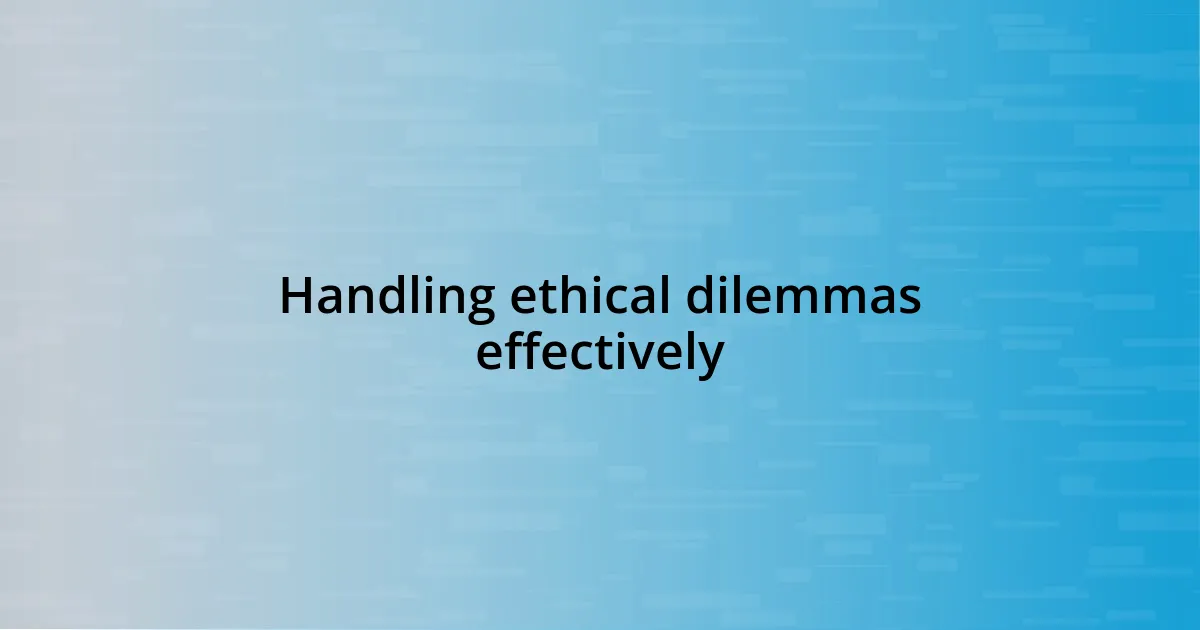
Handling ethical dilemmas effectively
Handling ethical dilemmas effectively often requires a calm, reflective approach. I recall a time when a colleague faced pressure to stretch the truth in a client report. I urged them to pause and consider the long-term implications of such a decision. Would a quick win be worth damaging our integrity? We talked through the potential fallout and ultimately decided to present the facts honestly, reinforcing our commitment to transparency.
Sometimes, it helps to have a trusted mentor or peer to lean on when navigating these tricky situations. I remember reaching out to a mentor during a particularly ethical conflict involving a client’s request for misleading information. This mentor’s perspective was invaluable, guiding me through a thoughtful decision-making process. They encouraged me to weigh the values that really mattered to me and the organization. Isn’t it reassuring to know you don’t have to face these dilemmas alone? A support system can be a real game changer.
Moreover, I’ve found that documenting these ethical dilemmas and their resolutions creates a rich learning archive. After our team encountered a challenging situation with a vendor, we decided to chronicle the incident and how we handled it. This gave us concrete examples to reference later when similar issues arose. It made me realize how these past experiences could inform future decisions. Have you considered building a resource library of ethical dilemmas in your workplace? It could serve as a guide that empowers everyone to tackle challenges head-on, fostering a culture of integrity and accountability.
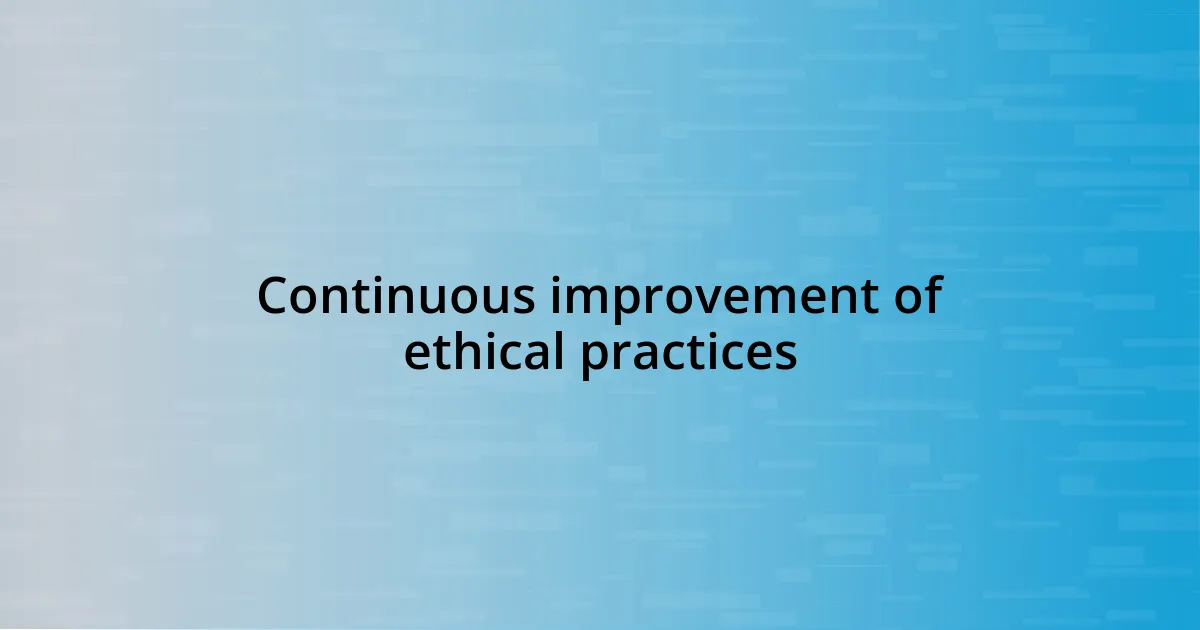
Continuous improvement of ethical practices
Continuous improvement in ethical practices is about fostering an attitude of adaptability and growth in a workplace. I’ve experienced this firsthand during a team initiative where we openly assessed our ethical guidelines. It was eye-opening to realize how revisiting and refining these guidelines not only clarified expectations but also sparked meaningful conversations about our values. Have you ever noticed how discussions around ethics can lead to unexpected revelations?
One approach I found effective was introducing quarterly ethics workshops. During one memorable session, we simulated real-world scenarios that posed ethical challenges relevant to our industry. The insights shared during these workshops were astounding; my colleagues approached dilemmas with diverse perspectives, and I left feeling inspired and better equipped to handle ethical issues. Isn’t it refreshing when a team can come together to tackle tough questions?
Additionally, I believe in the power of celebrating ethical behavior. Once, we recognized a team member who stood up against a questionable practice, and the impact was profound. By highlighting such actions, we send a clear message: ethical integrity matters here. It promotes a ripple effect, encouraging others to reflect on their own choices and behaviors. Have you considered how recognition could reinforce ethical standards in your workplace? By continuously improving in this arena, we contribute to a culture where ethics are not just discussed but lived.

